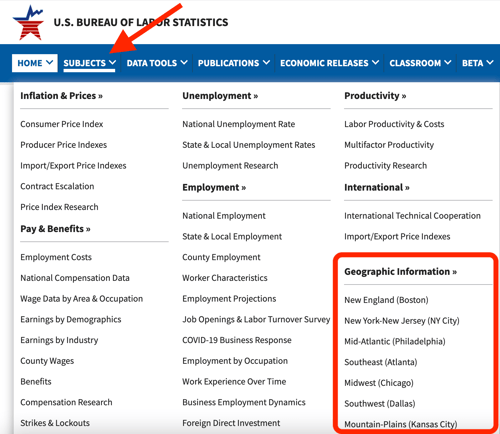Ask one hundred companies what a product marketer does, and you’re likely to get one hundred different descriptions. Product marketing is one of those roles that varies so much from industry to industry but also company to company within the same industry. The reality is that the role of product marketing is wide-reaching. The role involves working with every aspect of the business in both strategic and tactical ways. Whether you’re looking to get an introduction to the role of product marketing or expand your view of what a product marketer does, this post will give you the many factors to consider and resources to learn more.
What is Product Marketing?
So, what exactly is product marketing? Simply put, product marketing encompasses everything that is required to bring a product to market. Product marketing sits right in the middle of product, marketing, sales, and customer success.
Product marketing includes conducting market and competitive research, crafting messaging and positioning, executing product launches, supporting the organization in how to best sell, driving customer adoption, and promoting new products and features.
Elevate your product marketing strategy with this free kit >>
Product marketing can differ from organization to organization. As an organization scales and develops new products, they might have multiple product marketers responsible for different elements of product marketing and/or different products.
Let’s dive into the complex yet exciting role of product marketing!
How Does Product Marketing Compare to Other Roles?
Where does product marketing fit into your organization? How does it compare to other product and marketing roles you already have within your organization? Two of the most common comparisons are product marketing vs. product management, and product marketing vs. corporate marketing. Here’s how they compare:
Product Marketing and Product Management
Product marketing and product management are two very important roles within every product-led organization. While product marketers are responsible for bringing the products to market, product managers are responsible for determining which products and features to build that would be the most valuable to the market.
Product managers are responsible for defining customer needs, translating product requirements to engineering, conducting competitive product research, and prioritizing product initiatives.
Product marketers and product managers are both extremely customer-centric. They both work closely with all teams across the organization, and they work with one another to bring products to market.
Product Marketing and Corporate Marketing
Much like product management, product marketing also works closely with corporate marketing. In fact, sometimes product marketing sits within the marketing department, depending on the size and complexity of a business. These two roles work together to create a perfect go-to-market strategy.
A great way to compare product marketing and corporate marketing is through the five Ws (and one H) - who, what, where, when, why, and how of go-to-market strategy. It’s important to note that every organization is different, and some may split these responsibilities in different ways, but this is a general outline to follow:
Who: Product Marketing identifies your personas, what they care about, and their pain points.
What: Product Marketing and Corporate Marketing work together to craft and deliver your message to the market.
Where: Product Marketing and Corporate Marketing work together to reach their target audience. Product marketers know where their audience spends most of their time, and corporate marketers execute campaigns that resonate with the audience in those places.
When: Corporate Marketing knows exactly when to reach the buyers and leverages that knowledge to launch campaigns, send emails, and promote on social media at the perfect time.
Why: Product Marketing knows why you're targeting your audience and why your audience cares about what you’re communicating because they understand your personas in-depth.
How: Corporate Marketing identifies how to best reach your audience. Is it through ads, in-person events, emails? They know what will work best for your audience.
Now that we’ve broken down the difference between product marketing and other important go-to-market roles, let’s dig deeper into the responsibilities of product marketers.
Product Marketing Responsibilities
As we mentioned earlier in this article, product marketing is responsible for bringing products to market. While they do work together with corporate marketing and product management to build a concrete plan, a good chunk of GTM falls directly under product marketing.
Messaging and Positioning
In order to effectively reach your target market, you need to have strong messaging and positioning. Messaging is what you say to your audience, often a strong one-liner, and positioning establishes where you fit within your market, often having a competitive element.
Competitive and Market Research
Selling a great product means nothing if you don’t have a pulse on what’s happening around you. Understanding your market is essential to ensuring you have product-market fit and that you’re building a product or feature that fills an unmet need within your market.
Competitive intelligence is essential for understanding where you stand within your market and how your product compares to your competitors. Both competitive and market research are critical for getting a full understanding of your competitive landscape.
Sales Enablement
Enabling your sales team to win more deals, especially competitive ones, is a key part of any product marketer’s job. Creating up-to-date sales collateral can make a huge difference in whether your sales reps win or lose a deal. Not only is it important that product marketers create sales collateral, but it’s equally as important to keep the resources up-to-date, train sales on how to best use the collateral, and measure the impact.
Some examples of sales collateral that product marketers build are:
- Competitive sales battlecards
- Product one-pagers
- Case studies
- Email templates
- Training materials
Not every product marketer is responsible for all of the areas mentioned above, and some may be responsible for even more. With the range of responsibilities comes a range of required skills. Next, let’s look at some important skill sets of product marketers.
Key Skills Needed for Product Marketing
By now, you’ve learned that product marketers make the world go round. Well, maybe not the whole world, but certainly the product world.
In order to be a great product marketer, you need a few core skills. This is not an exhaustive list, and it’s also important to remember that great product marketers are built, not born, so new skills are always being added to a product marketers tool belt.
Strong Communicator: Product marketers communicate both internally and externally, so communication and storytelling skills are high up on the list of requirements.
Ability to Work Cross-Functionally: Product marketing works with just about every department across the organization. As mentioned above, product marketing works closely with product, marketing, sales, and customer success on a daily basis.
Competitive Mentality: A big part of product marketing is competitive intelligence. Approaching many elements of product marketing with a competitive lens will help you craft messaging and positioning to stand out in your market.
Entrepreneurial Mindset: The day to day of a product marketer is always changing. Product marketers need to be innovative, positive, creative, and execute on many types of projects.
Customer-Focused: While your competitors are important, your customers are even more important. We like to call this a customer-centric, competitor-conscious approach. Product marketers need to put customers at the center of everything they do.
Technical Knowledge: Technical knowledge is especially important for those product marketers who work in hardware or software. When it comes to communicating, a key element is translating technical language into a message that will resonate with your market. Having a technical background will give you an advantage as a product marketer.
Problem Solver: No role is problem-free, especially one that encompasses many different projects. Product marketers need to approach a problem as an opportunity rather than a setback. While many things can go wrong, there are also many ways to solve problems as they arise. Even if you can’t solve a problem the first time, you can apply your learning to future projects.
Product marketing is such a unique and complex role, and this blog post just barely scratches the surface into the many elements of the position. No two product marketers are alike – everyone comes from a different background, has a different set of skills, and focuses on different areas of the role. No matter the differences between product marketer, product marketing team, and overall business, one thing remains constant – product marketing is an essential role within every organization.

Seeing is believing! Check out Crayon for yourself.
Take a Product TourRelated Blog Posts
Popular Posts
-
 The 8 Free Market Research Tools and Resources You Need to Know
The 8 Free Market Research Tools and Resources You Need to Know
-
 6 Competitive Advantage Examples From the Real World
6 Competitive Advantage Examples From the Real World
-
 How to Create a Competitive Matrix (Step-by-Step Guide With Examples + Free Templates)
How to Create a Competitive Matrix (Step-by-Step Guide With Examples + Free Templates)
-
 24 Questions to Consider for Your Next SWOT Analysis
24 Questions to Consider for Your Next SWOT Analysis
-
 How to Measure Product Launch Success: 12 KPIs You Should Be Tracking
How to Measure Product Launch Success: 12 KPIs You Should Be Tracking



